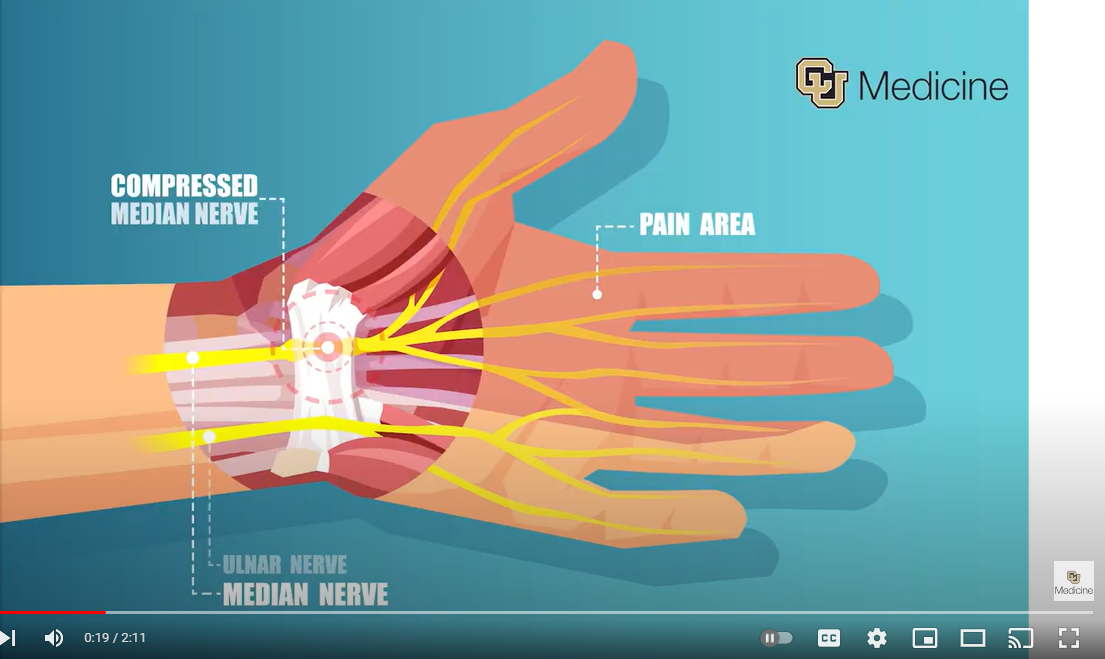Carpal Tunnel Syndrome
What is carpal tunnel syndrome?
Carpal tunnel syndrome is one of the most common reasons a patient would come see us here in the clinic and this is at its root. A compressive neuropathy where the median nerve the nerve that kind of innervates this side of your hand on the front side on the palm side here is getting compressed most notably here at the wrist, this happens in 10 to 20 percent of patients and so it is fairly common.
Signs & Symptoms
Some of the signs and symptoms of carpal tunnel syndrome are numbness in the fingers and sometimes this can even wake you up at night. This is on the Palmer side of your hand more so on these digits near your thumb. Sometimes it's worse with overuse and again some of the most notable symptoms are having it wake you up at night and feeling it's like you need to shake out your hand or wrist.
Treatment Options
The different treatment options for carpal tunnel syndrome revolve around bracing and again this is mostly bracing that you wear at night as your wrist flexes down when you sleep.
It increases the pressure on the nerve in the carpal tunnel and as such bracing your wrist in kind of a neutral position helps improve those symptoms and gives the nerve in your hand some reprieve while you sleep at night.
In addition to that sometimes a steroid injection can be beneficial but this is different for each patient and worth a good discussion if the patient fails these conservative options.
Often times we then can proceed to surgery which does fairly well and is in fact the most common surgery that a hand surgeon does on a regular basis. If we fail conservative management and end up deciding as a team that we'd like to proceed with surgery, usually it is about a four or five-day period where postoperatively afterward you can take the dressing off, wash your hand normally and shower normally, but would stop you from doing any heavy lifting for about two weeks after surgery. We just need the skin to heal so as long as we're delicate enough that we're not causing issues, the patient should do excellent at two weeks, that's when you'd see me postoperatively and we can remove any sutures if necessary and at that time normally allow you to do all activities as tolerated without restriction.


